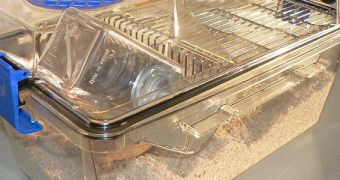According to the conclusions of a new scientific study published in the latest issue of the journal Cell, it would appear that a certain microbe commonly found in the human gut is able to play a role in mitigating the effects of autism.
A series of experiments to confirm this were recently conducted at the California Institute of Technology (Caltech), in Pasadena, by a team of experts spearheaded by neurobiologist Paul Patterson.
The group determined that the bacterium Bacteroides fragilis exists in lower concentrations in the guts of mice with autism-like symptoms. As such, they injected the small rodents with the microorganism, and observed what happened, Nature reports.
In addition to experiencing a reduction in their symptoms, the lab mice also exhibited a reduction in the severity of the gastrointestinal symptoms they were having as a result of autism. The same type of issues appear in human autism as well, where patients suffer problems with their intestines.
The new study may set the stage for developing new cures and therapies against this disorder. Researchers plan to continue their experiments to see if B. fragilis has the same beneficial effects in humans.

 14 DAY TRIAL //
14 DAY TRIAL //